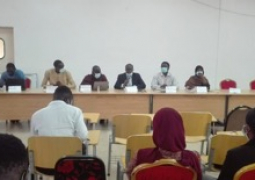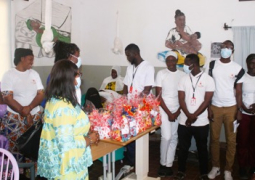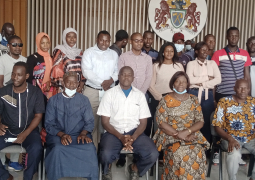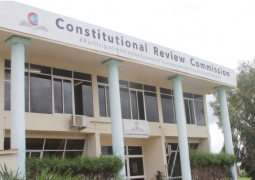
The orientation under the theme: “Awareness of electoral laws and processes is key to meaningful and peaceful electoral participation” commenced at Kerewan in North Bank Region.
At the event, Yusupha Bojang, NCCE Programme Manager reminded that elections are over but it is important to continue creating awareness about it.
Bojang described political parties as key stakeholders in any multi-party democracy, saying elections are the cornerstone for multi-party democracy.
He disclosed that political parties are formed to contest elections and assume leadership and that in a bid to do that, elections are established by law and conducted in line with law.
In addition, he said that the process is also guided by laws and therefore as stakeholders in elections, it is important that they familarise themselves with the laws, regulations and frameworks that guide elections.
“It is advisable that after elections stakeholders gather and reflect on the process because a lot do happen. Our electoral cycle is very long but they have learned and gathered a lot of experience from it.”
Bojang reminded that there is a draft Electoral Bill that is finding its way to the National Assembly, but decried that the process is too slow.
“We hope to get you feedbacks to ensure we have an electoral system everyone is proud of and one that everyone will validate and call free, fair, transparent and participatory,” he told participants.
Ansumana Camara, Independent Electoral Commission (IEC) Regional Electoral Officer for North Bank Region, said laws are very important as they guide our day to day dealings.
He disclosed that electoral laws have to be enacted by majority votes of citizens in a referendum or by the National Assembly, adding that in The Gambia, electoral laws are contained in the Constitution, Election Act and Local Government Act.
Drafting electoral laws, he added, is a critical undertaking and should use plain language where possible and avoid conflicting references.
The electoral officer stated that usually major changes to electoral laws cannot be undertaken if the electoral process is about to begin. “Such a provision aims at preserving political stability and legal certainty.”
Ngui Secka, Inter Party Committee Regional Chairperson for North Bank Region, called on party leaders to talk to their members when they are identified for trainings to make it clear for others to replace them if they cannot make it.
Madam Secka, a contestant for the 2016 Kerewan Area Council Chairperson election, highlighted that women always hide during discussions and decision-making processes.
“We sabotage and negotiate the failure of our fellow women and clap for, cook for, shout for, campaign for and leave our husbands for men during elections and when they win they never know who we are,” stated the retired educationist.
She described politics as very friendly and that it is people who abuse it and therefore need to change their attitude.
Saikou Jallow, a representative of National Youth Parliament, said any electoral laws that are not youth friendly should be discussed to be abolished.
He highlighted that Gambia’s electoral cycle is too long and should be compressed to allow for more time for development. “We must be ready to advance as a nation.”





